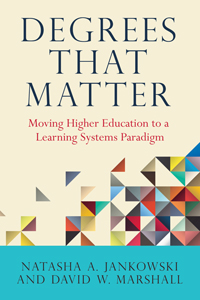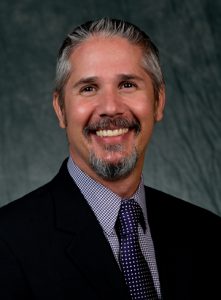
Concerned by ongoing debates about higher education that talk past one another, the authors of this book show how to move beyond these and other obstacles to improve the student learning experience and further successful college outcomes. Offering an alternative to the culture of compliance in assessment and accreditation, they propose a different approach which they call the Learning System Paradigm. Building on the shift in focus from teaching to learning, the new paradigm encourages faculty and staff to systematically seek out information on how well students are learning and how well various areas of the institution are supporting the student experience and to use that information to create more coherent and explicit learning experiences for students.
The authors begin by surveying the crowded terrain of reform in higher education and proceed from there to explore the emergence of this alternative paradigm that brings all these efforts together in a coherent way. The Learning System Paradigm presented in chapter two includes four key elements—consensus, alignment, student-centeredness, and communication. Chapter three focuses upon developing an encompassing notion of alignment that enables faculty, staff, and administrators to reshape institutional practice in ways that promote synergistic, integrative learning. Chapters four and five turn to practice, exploring the application of the paradigm to the work of curriculum mapping and assignment design. Chapter six focuses upon barriers to the work and presents ways to start and options for moving around barriers, and the final chapter explores ongoing implications of the new paradigm, offering strategies for communicating the impact of alignment on student learning.
The book draws upon two recent initiatives in the United States: the Tuning process, adapted from a European approach to breaking down siloes in the European Union educational space; and the Degree Qualifications Profile (DQP), a document that identifies and describes core areas of learning that are common to institutions in the US. Many of the examples are drawn from site visit reports, self-reported activities, workshops, and project experience collected by the National Institute for Learning Outcomes Assessment (NILOA) between 2010 and 2016. In that six-year window, NILOA witnessed the use of Tuning and/or the DQP in hundreds of institutions across the nation.
Table of Contents:
List of Tables and Figures
Acknowledgments
1) Landscape of Learning Initiatives
2) Shifting Paradigms
3) Aligning for Learning
4) Applying the Paradigm to Curriculum Mapping
5) Applying the Paradigm to Assignment Design
6) Perceived Barriers in the Learning Systems Paradigms
7) Reframing Academic Quality
About the authors:
 | Natasha Jankowski, Director and Research Assistant Professor with the Department of Education Policy, Organization and Leadership at the University of Illinois Urbana-Champaign, has presented at numerous national conferences and institutional events, and written various reports for NILOA. Her main research interests include assessment and evaluation, organizational evidence use, and evidence-based storytelling. She holds a PhD in Higher Education from the University of Illinois, an M.A. in Higher Education Administration from Kent State University, and a B.A. in philosophy from Illinois State University. She previously worked for GEAR UP Learning Centers at Western Michigan University and worked with the Office of Community College Research and Leadership studying community colleges and public policy. |
 | David Marshall is a Senior Scholar with the project and serves as a Professor of English and Director of the University Honors Program at California State University San Bernardino. He facilitated the Lumina Foundation-funded Tuning projects nationally from 2010 to 2016, working with states, regions and national disciplinary associations to identify essential learning within disciplines and develop strategies for campus-based engagement with the resulting learning outcomes. His research, taken from a practitioner lens, explores issues of alignment and curriculum mapping as a complex collaborative process in higher education, both within institutions and across institutions nationally. He is the author of Tuning American Higher Education: The Process and co-author of Roadmap to Enhanced Student Learning and co-editor of a special volume of New Directions in Institutional Research on Degree Qualifications Profile (DQP) and Tuning. A graduate of College of the Holy Cross, he earned his Master’s degree in Medieval Studies from the University of York, England and his Ph.D. in English from Indiana University. |

